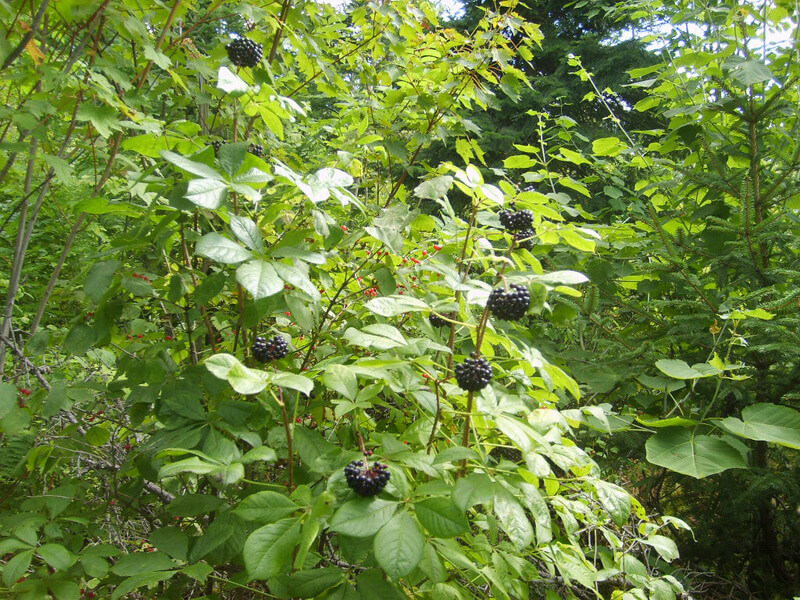Siberian Ginseng Extract: Making Treatments More Fruitful
Eleutherococcus senticosus, also known popularly as the Siberian Ginseng is a tough, woody shrub, native to the Northeastern Asia. The ancient Chinese literatures refer to these as ‘thorny’ and ‘free berried’, owing to their appearance. Although it has been used in traditional Chinese medicine for decades, the exact mechanisms by which the phyto-constituents function are not fully understood. Instead, the literature from the Chinese texts on alternative medicine suggests that they were used in a rather crude form, and without taking into account the possible after effects the dose can yield.
A Look at the Phyto-Constituents:
Siberian Ginseng consists of high amounts of diverse saccharides such as monosaccharide, oligosaccharides and polysaccharides, which together make up the bulk of phyto-constituents found in the Siberian Ginseng. Another group, called the Eleutherosides, which comprises a wide range of compounds belonging to various classes, is found in the root extract. Phenyl propanoid glycoside, saponins and sterol glycosides are some of the classes of compounds which belong to the Eleutherosides group of compounds. This group is the most significant in terms of therapeutic activity put up on animal tests by the extracts of Siberian Ginseng.
Re-discovery of the Traditional Asian Medicine:
Records suggest that Siberian Ginseng was popularly known as an adaptogen in Russia, which translates to a substance which helps the body to cope up or adapt to the environment. Though some claims regarding the therapeutic effects of the extracts of Siberian Ginseng are questionable in terms of their activity, most of the claims laid out in traditional medicinal texts have been researched upon and proved.
Cultivation:
Native to the eastern and north eastern highlands of Asia, the mountain forests of Russia, China, Japan and other East Asian countries provide the bulk of the World’s supply. Found as a woody shrub in the thick undergrowth of the coniferous forests, this tough shrub is known to withstand almost all soil conditions- from heavy clay, sandy to loamy. The shrub is also somewhat resistant to soil pH; acidic, alkaline or neutral soils do not seem to hinder the growth of the Siberian Ginseng. Besides these, sunlight as well as checkered shady areas seem to have no effect on the growth and life cycle of the shrub.
Areas of Research:
Modern science is based on the trial and error procedure, which takes into account records from ancient literature, as well as modern testing procedures which can look into the details like never before. Siberian ginseng is being studied for its applications on a wide range of diseases:
• Infection caused by the Herpes Virus
• Colds and Flu
• Mental and Physical Performance
• Anxiety
• Fatigue and Insomnia
• Bronchitis
• Hypertension
Though the claims laid out on the literatures of the traditional medicine, the extracts do seemed to have some effects in boosting energy levels, balancing the secretion and flow of neurotransmitters like epinephrine, nor-epinephrine, dopamine and serotonin. Siberian Ginseng is also thought to boost memory, mental clarity and concentration of any individual who’s treated with the extracts of Siberian Ginseng.
As aforementioned, the adaptogen Ginseng is known to boost the human immunity system such that there are no major crises brewing inside the body. Some visible effects caused by intake of extracts of Siberian Ginseng are mild sedative properties, and increasing the male reproductive drive. As for the claims of liver detoxification, it has been experimented and verified the multiplication effect of Siberian Ginseng extracts, which when used during any viral infection, multiplies the action of interferon, a group of signaling proteins known to fight against each of the life stages of a virus.
Major Success with Siberian Ginseng:
Siberian Ginseng has yielded promising results in terms of treatment of chronic lung infections such as bronchitis. The Hypothalamic-Pituitary-Adrenal Axis, also known as the HPA, when depleted can lead to a lot of symptoms like stress, fatigue, neurasthenia, etc. this process can be reversed using the Siberian Ginseng extracts.
Various auto-immune diseases, HIV, chronic fatigue syndrome have been claimed to have been successfully treated using the extracts of the Siberian Ginseng. Though the claim stands controversial, research work is being carried out on an extensive scale to figure out the true potential of this wonder plant.



 Healthier Future
Healthier Future